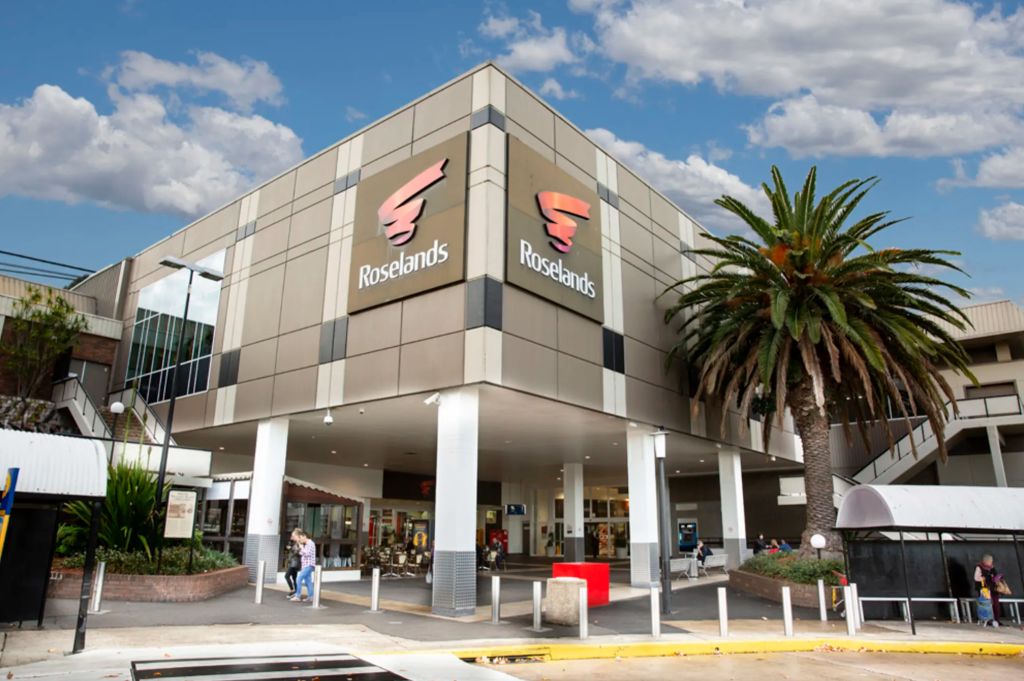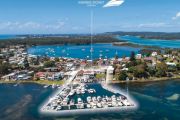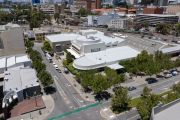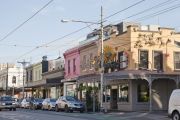
Investors pump billions into shopping malls as retail rebounds
Investors have roared back into the shopping centre market, snapping up $4.52 billion worth of assets in anticipation that the pandemic-hit sector will rise again and provide high-yielding returns.
The asset sales have defied the impact of the global pandemic, which forced most non-food tenants to shut for many months. With restrictions easing, investors are rushing to get a foothold in bricks and mortar retail.
CBRE’s head of retail capital markets, Pacific, Simon Rooney, who sold a half share of the Roselands mall in Sydney’s south-west to the acquisitive Hong Kong-based JY Group for $167 million, said retail was the real mover at present, with at least another $2 billion in assets expected to change hands this year.
“The comparative returns and value proposition is clearly compelling, with major owners now able to competitively rebalance portfolios, allowing incoming investors to strategically acquire some of Australia’s best retail assets,” Mr Rooney said.
He added the return of institutional capital into the sector, combined with strong private investor demand, would lead to heightened transactional activity into 2022. He said almost $4.52 billion had flowed into Australian retail investments in the past six months, up 118 per cent.
That cash has already rolled into what is the biggest direct retail property transaction in Australia to date and the largest deal globally in the last three years with UniSuper and Cbus Property acquiring an 80 per cent and 50 per cent stake in regional malls, Pacific Fair on the Gold Coast and Macquarie Centre in Sydney.
The assets came from an AMP managed fund at book value for $2.2 billion on a weighted average capitalisation rate of 4.66 per cent.
Under the deal, the assets will be held in the AMP Capital Retail Trust, which UniSuper and Cbus Property will have majority stakes in, with AMP Capital owning the balance. AMP Capital will maintain management rights of the assets and look at redevelopments including a mixed use scheme at Macquarie Centre.
Sholto Maconochie, from Jefferies, said he expects retail asset values to hold firm at the December 2021 levels for regional malls.
He said the AMP deal showed super-fund demand for high quality retail assets which had been lacking recently, with investors typically favouring smaller more convenience and large-format style assets since the onset of COVID-19.
“Since the onset of COVID-19, regional malls values declined by around 10 per cent to 15 per cent and while re-leasing spreads – the difference between rents paid in existing leases and new ones – were around negative 10 per cent at June 2021, they are starting to improve and stabilise.
In a separate deal, Dexus is seeking to sell minority 20 per cent and 25 per cent stakes in Pacific Fair and Macquarie Centre from its managed wholesale fund DWPF, which took over management rights of AMP’s diversified property fund (ADPF) early this year and merged it with DWPF.
Mr Maconochie said Scentre Group and Vicinity Centres were looking at these minority stakes to get management rights, but given the AMP transaction, it is unlikely they would be interested in a minority stake with no management rights.
In the Roselands deal, JY Group bought the stake from Challenger asset management, with Vicinity owning the other half and remaining the manager of the 63,344 square metre mall.
Roselands Shopping Centre was one of Sydney’s first regional shopping centres and was the largest in the southern hemisphere on completion in 1965.
It recently underwent a $90 million redevelopment and upgrade to the ground-floor fresh food precinct and is anchored by Myer, Woolworths, Coles, Aldi and a new Kmart discount department store, which recently replaced Target.
In other recent deals, Vicinity snapped up a 50 per cent interest in Harbour Town Premium Outlets on the Gold Coast for $358 million, and GPT sold Casuarina Square in Darwin for $420 million and Wollongong Central for $400 million.











